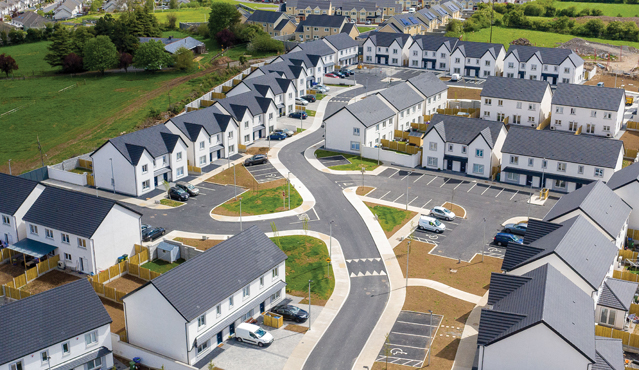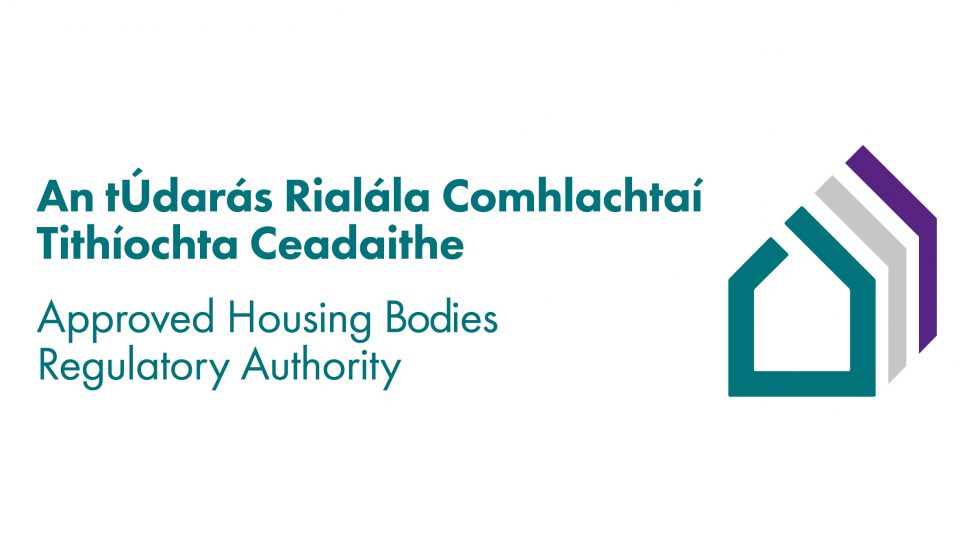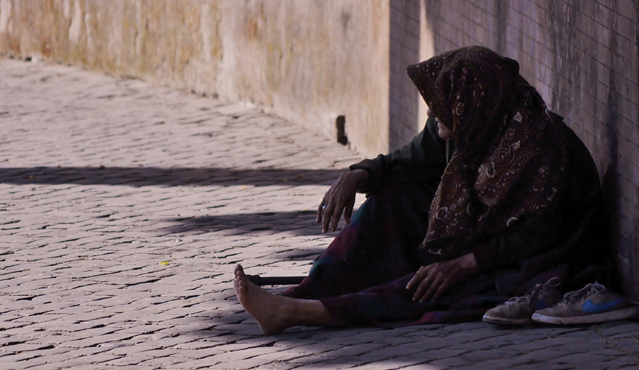
International homelessness
1st June 2021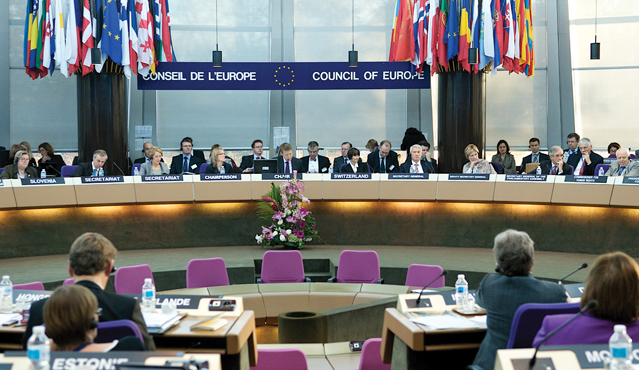
Irish local authority housing “inadequate” says Council of Europe
1st June 2021Building and sustaining good partnerships is key to housing provision
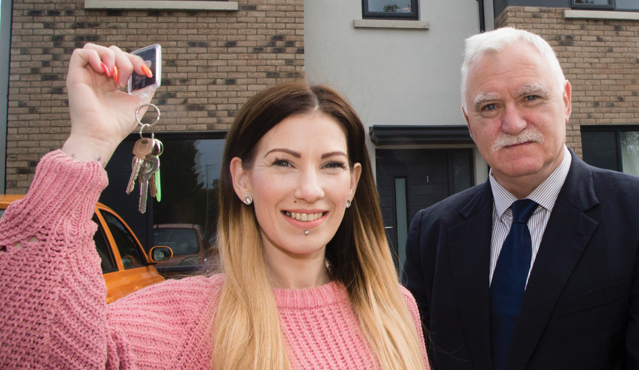
Sandra Farmer, a member of the Dublin West Co-operative with Kieron Brennan, CEO, Co-operative Housing Ireland at the launch of Weavers Wood, Clonsilla, Dublin 15.
Padraic Clancy, Head of New Business with Co-operative Housing Ireland (CHI), explains how taking on larger projects has enabled the organisation to consolidate its workload by keeping delivery numbers high but reducing the number of sites.
The pandemic has had a dramatic impact on every sector in Ireland. Housing has been no different, especially considering the demands that pre-existed the outbreak of Covid-19. Increasing supply to meet housing needs, the provision of affordable housing solutions for those most in need, and the sustainability of quality housing stock into the future will require a dedicated and steady contribution from approved housing bodies (AHBs). Co-operative Housing Ireland has significantly increased its output to respond to these needs and has investigated new ways of working to facilitate larger contributions to housing stock.
One such larger project was Hazelwood Rise, Rathnew, County Wicklow. Speaking about the development, Clancy says: “Hazelwood Rise was a huge game changer for the organisation, with 144 new houses and apartments on one site. It brought us into a new stratosphere in dealing with larger developers, and it opened our eyes to working on larger schemes as opposed to multiple smaller schemes. We worked with Gerry McGreevy Construction on this estate. They have developed other schemes for us since this project, such as Weavers Wood in Clonsilla and are currently developing Ballygall Road West in Finglas.
“From a management point of view, Hazelwood Rise is all on the one site, which simplifies things for us. The houses have a great design, and the apartments are excellent quality with high ceilings. Everything is bright and airy, and all the buildings are A-rated with air-to-water heat pumps. That makes them more affordable for our members to live in. Overall, they are beautiful homes on the edge of Wicklow with quick access to the motorway to travel to Dublin.”
In tandem with the delivery of houses, the organisation continues to highlight solutions to issues that impact the sector. At the centre of the housing crisis, Clancy emphasises, are the people who need secure housing, many of whom have been waiting for years to turn the key in a place they can call home.
“Brookhill in Carrigaline, County Cork was a fantastic achievement for CHI. We showcased the work that we do, the people that it impacts and the importance of quality housing. It’s an estate of 69 turnkey homes. Turnkey homes are essential to addressing the housing crisis as they allow for: the risks associated with building to be pushed back on to the developer; a greater housing tenure mix; social housing to be built on private land; and accelerated house building.
“We provided homes to families there before Christmas 2020 and were delighted to have Taoiseach Micheál Martin there to open the estate. It was wonderful to meet with members, hear their stories and see their housing journeys featured on television and radio. These types of conversations give the wider public an insight into how safe secure tenancy really does change lives.
“The most important thing for CHI is that we have very happy residents. We interviewed a family that moved in and the father said that his children thanked them for moving into the house. Many families that moved in would not have experienced that security of tenure before, or the quality of those houses. In addition to that, they have been housed within the cooperative ethos, which I feel is our added value, because of the level of involvement that our members have,” the CHI Head of New Business asserts.
Clancy believes that a key factor to successful housing provision is identifying and addressing the needs in a particular area. “Location, location, location. It really is all about the suitability of the area and responding to the housing need. There are many considerations to make when embarking on a new scheme. You must look at the housing situation as it stands in an area and react to it. You also need to look at what is coming on board, the availability of sites, and most importantly the proximity of services that our members will need. Are there schools in the area, amenities for young families, shops, and medical centres? The place needs to be liveable. There really is no point in developing a scheme in the middle of nowhere where people will be isolated and have little access to services or other supports,” he says.
Building and sustaining positive and effective partnerships has been key to securing CHI’s pipeline for the next number of years. The organisation has committed to an ambitious four-year plan to double its housing stock. Discussing the plan, Clancy remarks: “Without collaboration with local authorities, CHI would not be able to take its first step in delivering houses and set such ambitious targets. We have a good relationship with the Department of Housing, Local Government and Heritage and the housing departments within the local authorities. The local authorities really are the first wrung on the ladder for us when it comes to increasing our stock.

Bauncloka Heights, Limerick, a mix of three bed houses and two bed apartments all with a minimum BER A3 rating.
“Second, is the Department of Housing itself, followed by the Housing Finance Agency [HFA] and pillar banks. The HFA will always be our most important funder but going forward we need to diversify our funding opportunities if we are to meet our targets. We have done great work so far with domestic pillar banks.”
Concluding, Clancy indicates: “It is also highly important to us that we try to collaborate with good quality developers. We have a good working relationship with many developers that has extended beyond working on our initial projects with them. Willow View, Castlebridge, County Wexford is a good example of that. It was developer Darragh Ryan’s first attempt at a CHI project, and we are now undertaking our third project with him.
“Continuing to develop new projects with a trusted developer is invaluable to us, because we know the high quality that
they will deliver and there is already a working relationship there. Developers we have worked with know our professionalism and what our expectations are, and we can problem solve together as issues present themselves because we have done it all before on another project. Good partnerships make it easier for both the developer and the AHB.”
For more information:
T: 01 661 2877
E: admin@cooperativehousing.ie
W: www.cooperativehousing.ie
Twitter: @coophousingie

